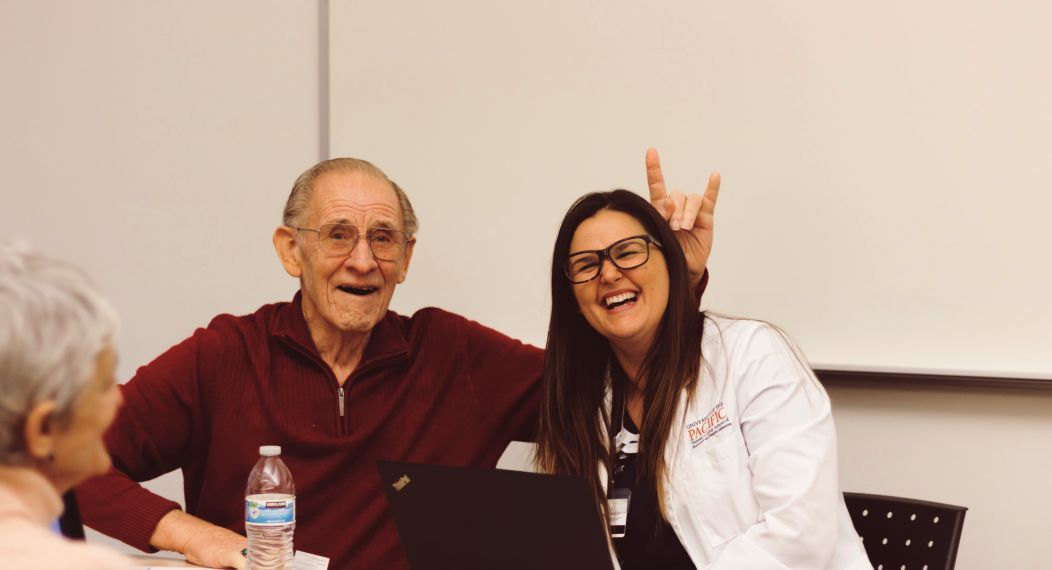New Health School and Programs Focus on Meeting High Demand Needs
Dec 20, 2019
University of the Pacific is leveraging its reputation for preparing health care professionals to create four new programs that will serve as the catalyst for a new health school to meet the demands of a growing health care industry.
New accelerated master’s degree programs in clinical nutrition, nursing and social work will begin in fall 2020, and a doctorate in occupational therapy will begin in spring 2021. These will join existing popular programs in athletic training, audiology, physical therapy, physician assistant studies and speech-language pathology to form Pacific’s new School of Health Sciences. The dental and pharmacy programs will remain in their respective schools.
The School of Health Sciences will be housed on the Sacramento campus and programs will be offered in flexible formats on all three campuses (Sacramento, San Francisco and Stockton).
“Retiring baby boomers have increased health care needs, resulting in a need for more health care professionals,” said Maria Pallavicini, Pacific’s interim president. “These new programs include hybrid and online learning and were developed after extensive conversations with our community partners and others in health care.”
Health care jobs are expected to grow by 14% from 2018 to 2028, according to the U.S. Bureau of Labor Statistics, outpacing all other employment sectors.
Programs will feature interprofessional education where students in the School of Health Sciences, the Thomas J. Long School of Pharmacy, and the Arthur A. Dugoni School of Dentistry will learn alongside each other. This collaborative approach will prepare students for clinical settings where integrated teams provide patient care.
“Students from our various health care programs will take classes and have clinical experiences together so that they can develop the ethos of interprofessional medicine as it is practiced today,” said Michael Hunter Schwartz, Pacific’s interim provost. “We’re preparing our students to be collaborative health care leaders who will support lifelong wellness in our communities.”
A HISTORY OF HEALTH CARE LEADERSHIP
Pacific has trained health care professionals since 1858 when the university formed the first medical school in California, now the Stanford University School of Medicine. The university’s portfolio of health care programs includes the Arthur A. Dugoni School of Dentistry, which was founded in 1896 as the College of Physicians and Surgeons. The Department of Speech-Language Pathology dates back to 1936. Music therapy was introduced in 1938 and will remain in the Conservatory of Music. The Thomas J. Long School of Pharmacy opened in 1955, the Department of Physical Therapy was established in 1985 and the Department of Audiology was launched in 2015.
Learn more about the School of Health Sciences at Pacific.edu/HealthSciences.
NEW HEALTH PROGRAMS AT A GLANCE
- DOCTOR OF OCCUPATIONAL THERAPY
An accelerated program that will prepare students to help people of all ages live their best lives by working through injury, disability and illness. Instruction will be delivered in a hybrid format, offering online learning, classroom instruction and simulation labs. The 120-unit program can be completed in eight trimesters, or 32 months. - MASTER OF SOCIAL WORK
An accelerated program that will prepare students to focus in health care areas such as mental health and aging. This hybrid program will be open to students with or without social work academic degrees or job experience. Students with undergraduate social work degrees can graduate in as few as 12 months, or three trimesters. - MASTER OF SCIENCE IN NURSING
An accelerated program designed for licensed nurses who have a bachelor’s degree in nursing and are seeking a master’s degree while continuing to work. Specialties are offered in rehabilitation nursing, diabetes management or a self-designed concentration. - MASTER OF SCIENCE IN CLINICAL NUTRITION
An accelerated program that will lead to eligibility for the Registered Dietician Nutrition exam, and will leverage existing community relationships and partnerships in health care. The Master of Science in Clinical Nutrtion was developed to comply with the rigorous accreditation associated with the Future Education Model of nutrition education.




